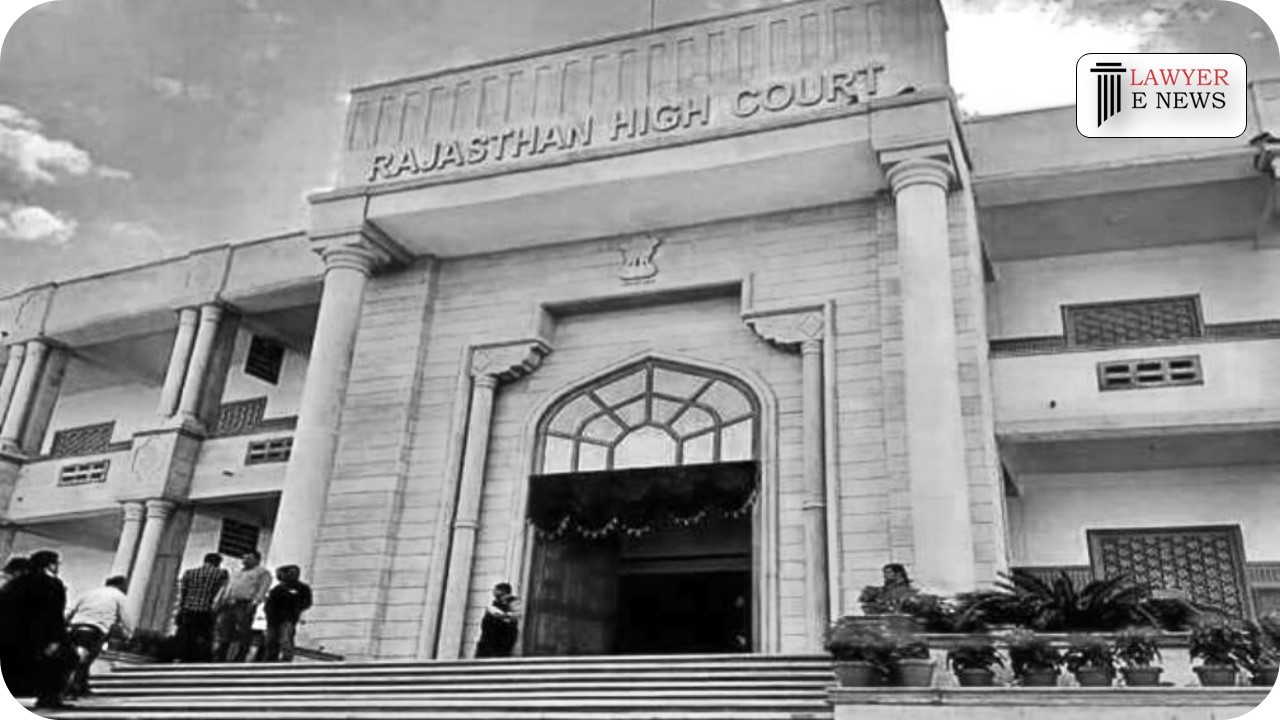-
by sayum
14 February 2026 2:22 PM



The Rajasthan High Court, under the jurisdiction of Hon’ble Dr. Justice Nupur Bhati, has dismissed a civil writ petition (No. 1885/2024) filed by Rajendra, S/o Late Matu Ram, against the legal heirs of Late Laxmi Narayan. The case revolved around the admissibility of a photocopy of an unregistered compromise document under Section 65 of the Indian Evidence Act, 1872.
The petition challenged the Trial Court’s order, dated January 11, 2024, which dismissed an application seeking to admit a photocopy of a compromise document as secondary evidence. The petitioner argued for the admissibility of the document related to the partition of immovable property, despite it being unregistered and unstamped.
The dispute originated over the possession and partition of a property initially held by Hukma Ram. Following his death, his heirs, including the petitioner and respondents, claimed succession rights. The respondents filed a suit for partition and permanent injunction in 2010, accusing the petitioner of partitioning the property without their consent. The petitioner attempted to introduce a compromise document from 2014 to support his claims.
Admissibility of Secondary Evidence: The court reaffirmed that the compromise document, dated January 27, 2014, required compulsory registration under Section 17 of the Registration Act, 1908, because it created rights in immovable property. As the document was unregistered and unstamped, it could not be admitted as primary or secondary evidence.
Legal Precedents: The judgment cited several precedents, including the Supreme Court’s rulings in Roshan Singh v. Zile Singh and Bhoop Singh v. Ram Singh Major, which emphasized the necessity of registration for documents affecting immovable property rights. The court also referenced the case of Korukonda Chalapathi Rao & Anr. v. Korukonda Annapurna Sampath Kumar to highlight the conditions under which unregistered family settlements can be used.
Role of Section 65 of the Indian Evidence Act: The court clarified that secondary evidence of a document could not be admitted if the original document itself was inadmissible due to non-registration and lack of stamp duty, as stipulated in Shankar Lal v. The Civil Judge (Jr. Division), Shahpura.
The court meticulously analyzed the legal principles surrounding the registration and admissibility of documents under the Registration Act, 1908, and the Indian Evidence Act, 1872. The compromise document explicitly partitioned the property and conferred specific rights to the parties involved, necessitating compulsory registration. The court underscored that allowing secondary evidence of such a document would undermine the statutory requirements and the intent of the Registration Act.
Conclusion The Rajasthan High Court upheld the Trial Court’s decision, emphasizing the legal necessity for registration of documents affecting immovable property rights. The dismissal of the petition underscores the importance of adhering to statutory requirements for the admissibility of evidence. Future legal actions or appeals arising from this judgment remain to be seen, as the parties may seek further legal recourse.
Date of Decision: May 22, 2024
Rajendra, S/o Late Matu Ram vs. Legal Heirs of Late Laxmi Narayan
